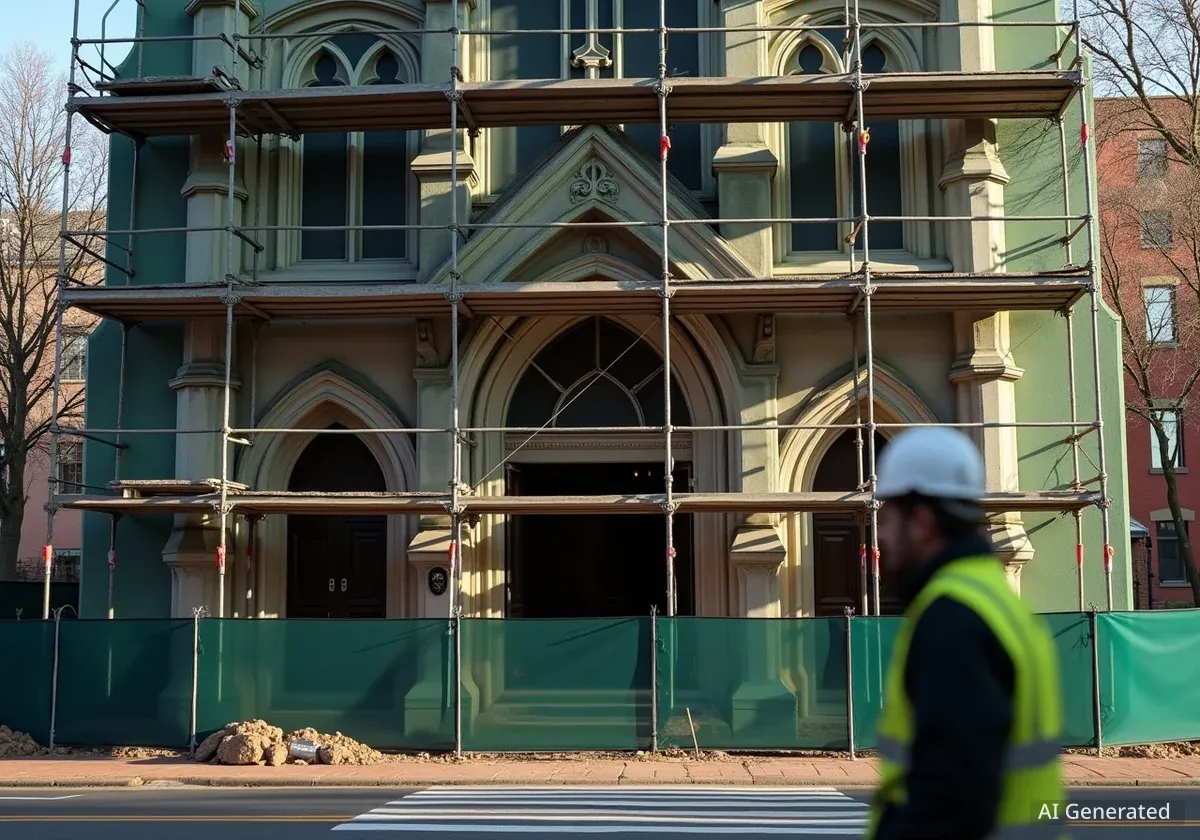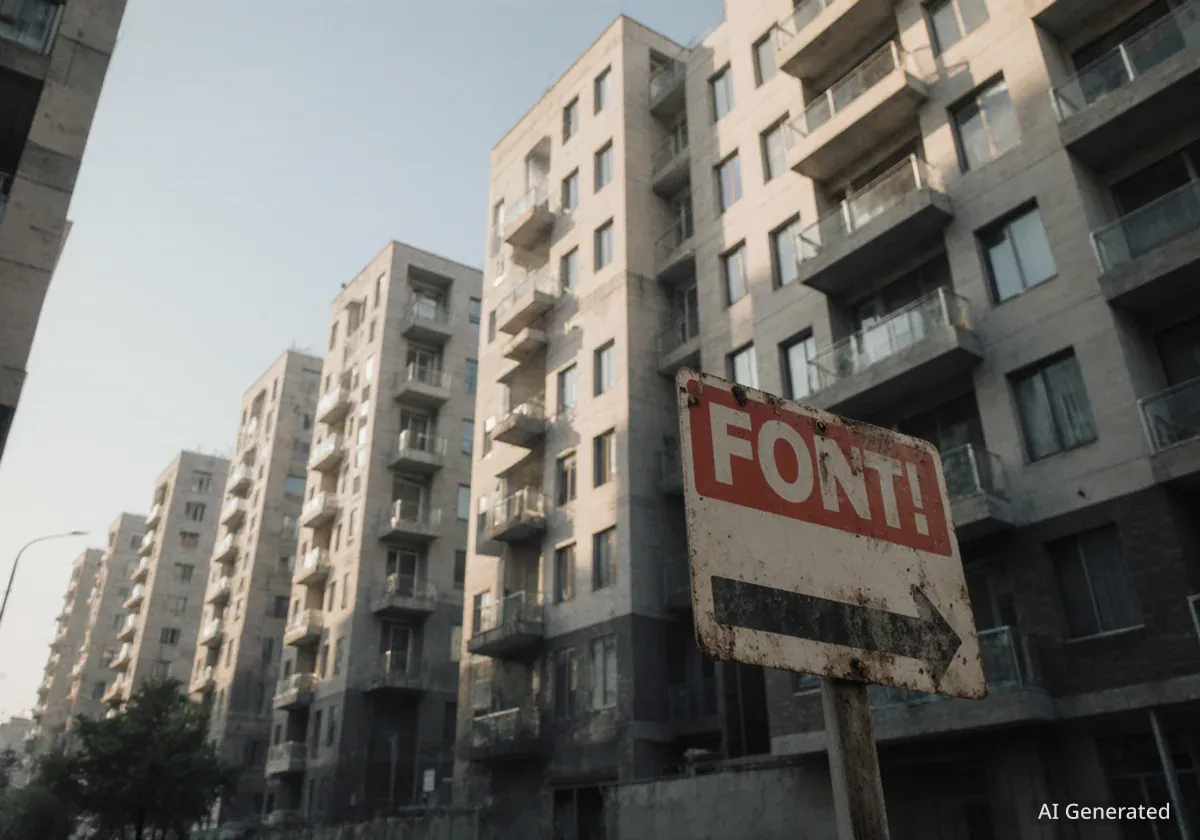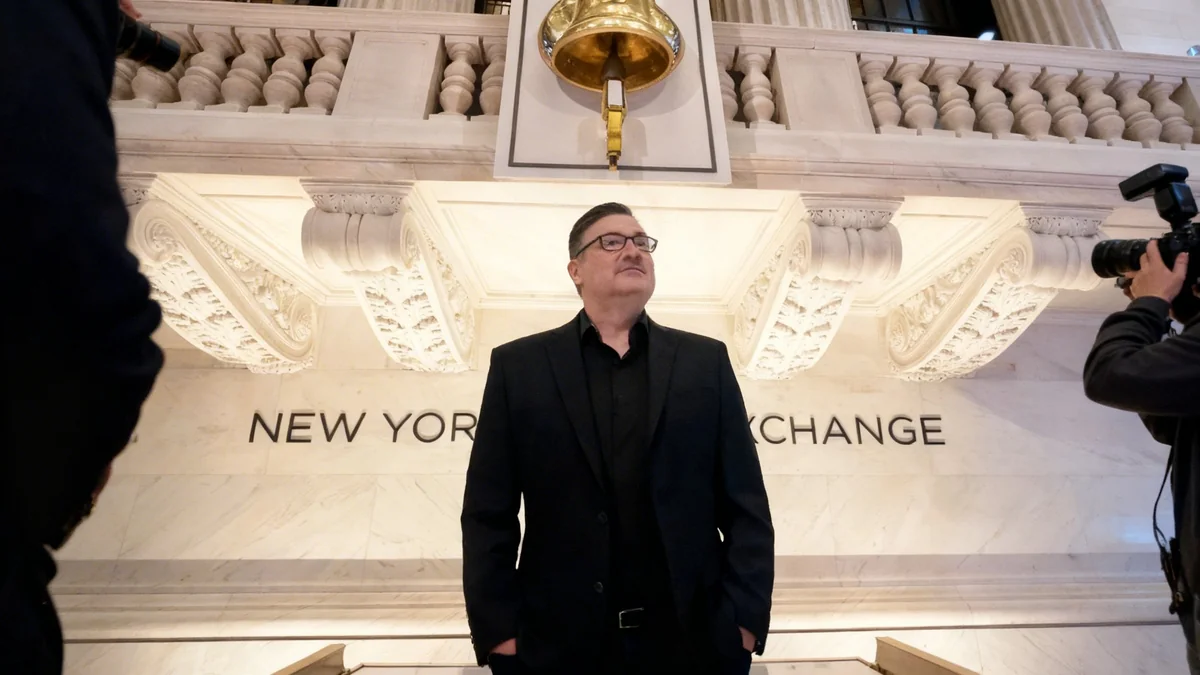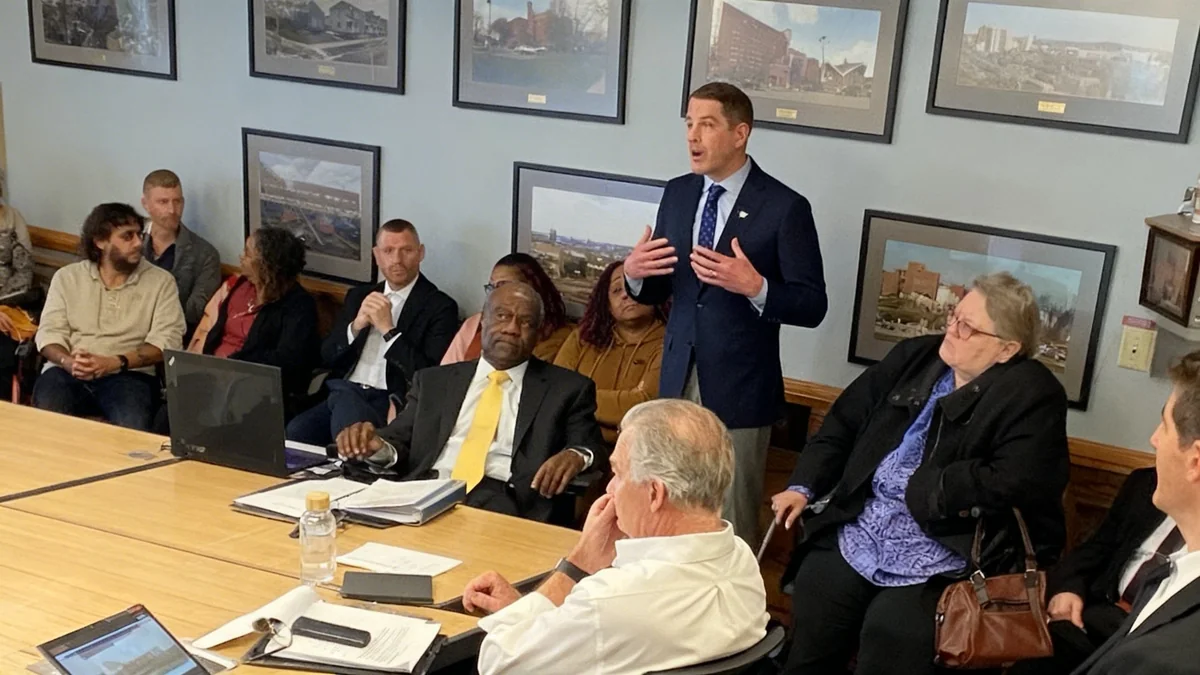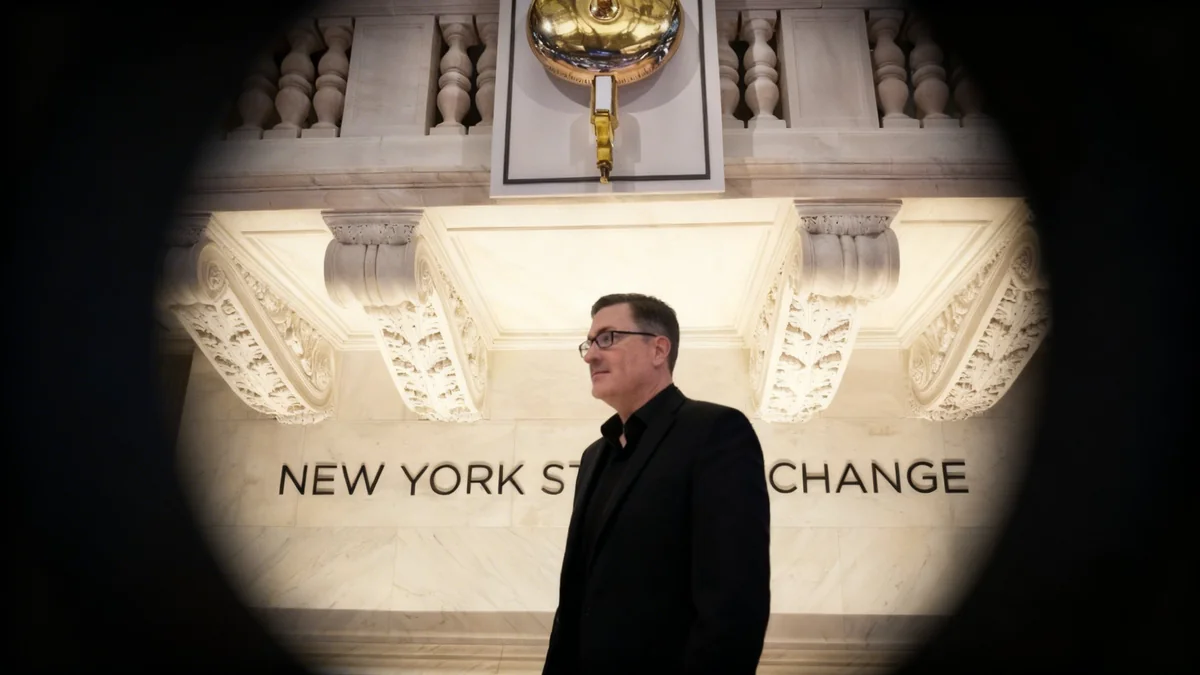A historic church in Boston's Jamaica Plain neighborhood, vacant for over two decades, is being redeveloped into 55 units of affordable housing. The project, led by Pennrose, LLC, is supported by a $37.6 million tax-exempt bond from MassDevelopment, aiming to address the city's critical need for affordable living spaces.
The Blessed Sacrament Church, an architectural landmark built in the early 20th century, will be transformed through an adaptive reuse project. The financing, which includes significant contributions from public agencies and private partners like Citizens, will create homes for low-income households and individuals experiencing homelessness.
Key Takeaways
- A former church in Jamaica Plain is being converted into 55 affordable apartments.
- The project is funded by a $37.6 million tax-exempt bond from MassDevelopment and other sources.
- Units will be available to households earning between 30% and 80% of the area median income (AMI).
- Six units are specifically reserved for individuals transitioning out of homelessness.
- The redevelopment preserves a historic building while creating critically needed housing.
A New Purpose for a Community Landmark
The Blessed Sacrament Church served the Jamaica Plain community for generations before it closed its doors in the early 2000s. For more than 20 years, the building remained vacant, a silent monument to a different era.
In 2014, the local nonprofit Hyde Square Task Force acquired the property with the vision of preserving its role as a community anchor. This new partnership with national developer Pennrose brings that vision to life, repurposing the historic structure to meet one of Boston's most pressing contemporary needs: affordable housing.
"This redevelopment will restore this church that has been vacant for 20 years into the vibrant community anchor residents and families have known it as across generations," said Mayor Michelle Wu. "It adds critically needed affordable and mixed-income housing to the neighborhood while honoring the church’s historic architecture."
The project represents a significant effort to maintain the building's historical character while giving it a new, vital function. The completion date is currently projected for early 2028.
Detailed Housing and Affordability Plan
The redevelopment will create a diverse mix of housing options designed to serve a range of income levels within the community. The 55 units will be divided into several apartment sizes to accommodate different household needs.
Unit Breakdown by Size
- Studio Apartments: 17 units
- One-Bedroom Apartments: 25 units
- Two-Bedroom Apartments: 13 units
A key feature of the project is its deep affordability. The rental rates will be tied to the Area Median Income (AMI), ensuring the apartments remain accessible to low- and moderate-income residents.
The affordability structure is tiered to serve those with the greatest need:
- 11 units will be reserved for households earning at or below 30% of AMI.
- 7 units will be for households at 50% of AMI.
- 27 units will be for households at 60% of AMI.
- 10 units will be for households at 80% of AMI.
Furthermore, the project includes a specific allocation of six units for individuals experiencing homelessness, providing stable housing as a foundation for other support services.
The Financial Framework for Redevelopment
Bringing a project of this scale to fruition required a complex financial strategy involving multiple public and private entities. The cornerstone of the funding is a $37.6 million tax-exempt bond issued by MassDevelopment.
This bond was purchased by Citizens, a key private-sector partner. According to Lisa Murray, Massachusetts President at Citizens Bank, "investing in affordable housing is investing in the future of our communities."
Financing Sources
The project's total financing of approximately $38 million is a collaborative effort. In addition to the MassDevelopment bond, federal low-income housing tax credits are expected to generate an additional $32.8 million in equity, making the project financially viable.
Once construction is complete, the Massachusetts Housing Partnership (MHP) will assume the bond and provide long-term, fixed-rate financing. Clark Ziegler, Executive Director of MHP, noted the project helps bring residents back to a "walkable, transit-rich neighborhood that has been under market pressure for years."
A Model for Preservation and Progress
Government and community leaders have praised the Blessed Sacrament redevelopment as a model for how to address urban housing shortages creatively. The project balances the preservation of a historic asset with the urgent need for new homes.
"The Blessed Sacrament Church has long stood as a pillar of community in Boston’s Jamaica Plain neighborhood," said Eric Paley, Economic Development Secretary and Chair of MassDevelopment’s Board of Directors. "This bold redevelopment will carry the building’s legacy forward and strengthen our economy by creating new affordable housing opportunities."
The adaptive reuse approach avoids demolition, retaining a building with deep cultural significance while transforming its interior into modern, safe, and affordable living spaces. Karmen Cheung, Regional Vice President at Pennrose, emphasized that the project will "improve access to high-quality housing in one of the country’s most expensive cities."
As cities like Boston continue to face housing affordability challenges, projects like the Blessed Sacrament conversion offer a template for future development. They demonstrate that historical preservation and the creation of affordable housing can be complementary, rather than conflicting, goals.

